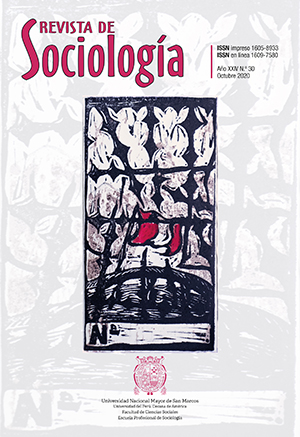The intellectuals and the peruvian nation. Reflection on the eve of the bicentennial
DOI:
https://doi.org/10.15381/rsoc.v0i30.18904Keywords:
Intellectuals, Peruvian nation, bicentennial, nation, criollo peopleAbstract
In this article, the author explains how the failure of the Tupacamarista project would open the way for the ideas and actions of the Creoles, and these, through the privileged use of writing, would dominate the world of ideas and, therefore, hence, of ideological projects. Following the route of the transformations of the Creole group, he analyzes its socio-cultural composition and its ideas. The pre-1781 indigenous would no longer have the possibility of resurgence, even when the Creole contingent loses consistency, that is, its capacity as a political subject would no longer be irrelevant. From the middle of the 20th century, the ideological field to be conquered would be disputed by what was left of the small Creole contingent and by the diffuse elements left by the process of postinternal migration cholification and post-Velasquista reforms. Later, Fujimori politics would modify the role of intellectuals. Thus, an unprecedented conflictive process would be configured, of struggle for political, economic, ideological and symbolic power; and for giving meaning to a deeply modified country through new subjects of ideas.
Downloads
Published
Issue
Section
License
Copyright (c) 2020 Osmar Gonzales Alvarado

This work is licensed under a Creative Commons Attribution-NonCommercial-ShareAlike 4.0 International License.
AUTHORS RETAIN THEIR RIGHTS:
a. Authors retain their trade mark rights and patent, and also on any process or procedure described in the article.
b. Authors retain their right to share, copy, distribute, perform and publicly communicate their article (eg, to place their article in an institutional repository or publish it in a book), with an acknowledgment of its initial publication in the Revista Sociología.
c. Authors retain theirs right to make a subsequent publication of their work, to use the article or any part thereof (eg a compilation of his papers, lecture notes, thesis, or a book), always indicating its initial publication in the Revista Sociología (the originator of the work, journal, volume, number and date).






